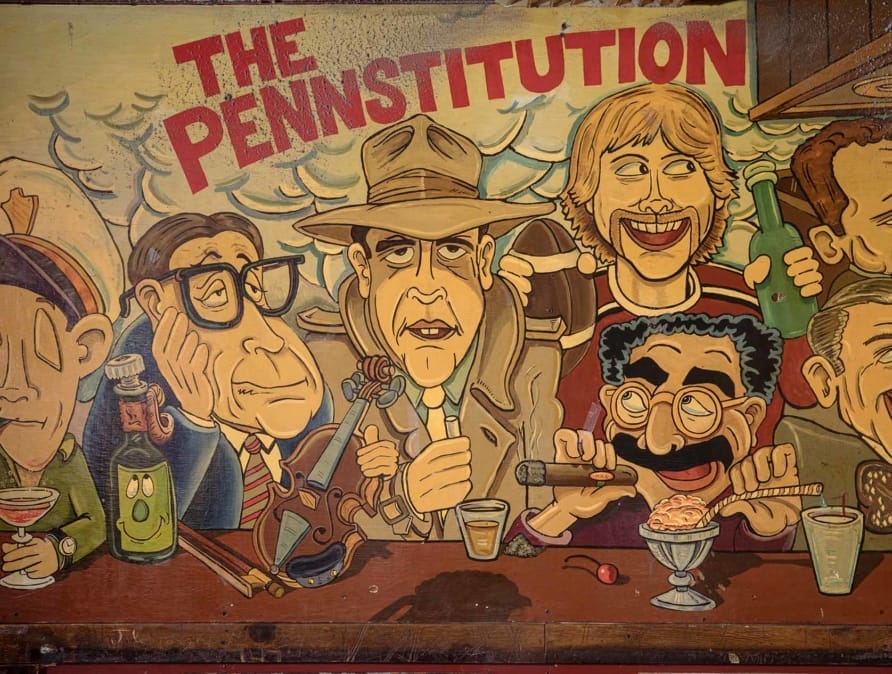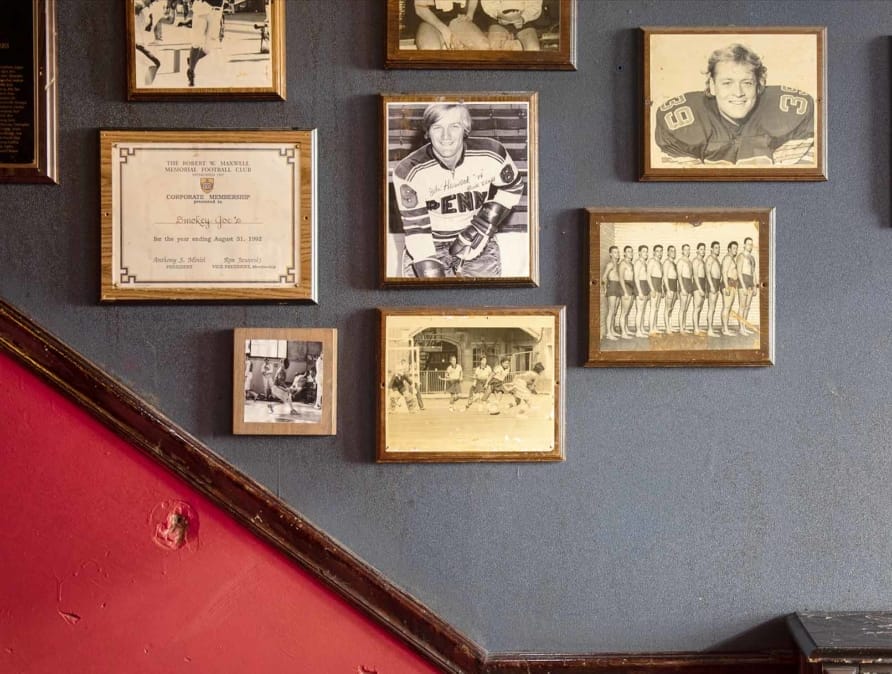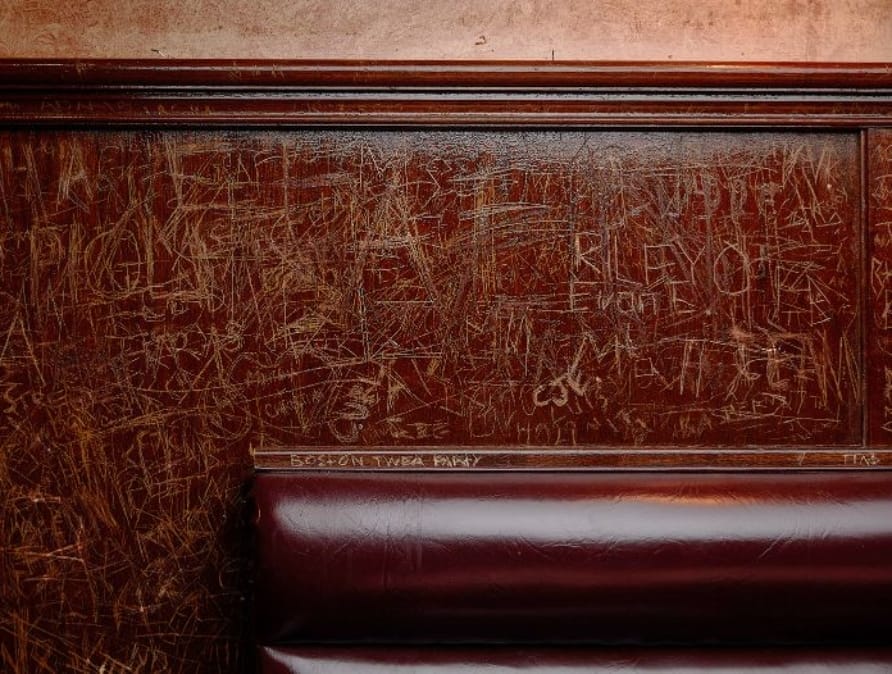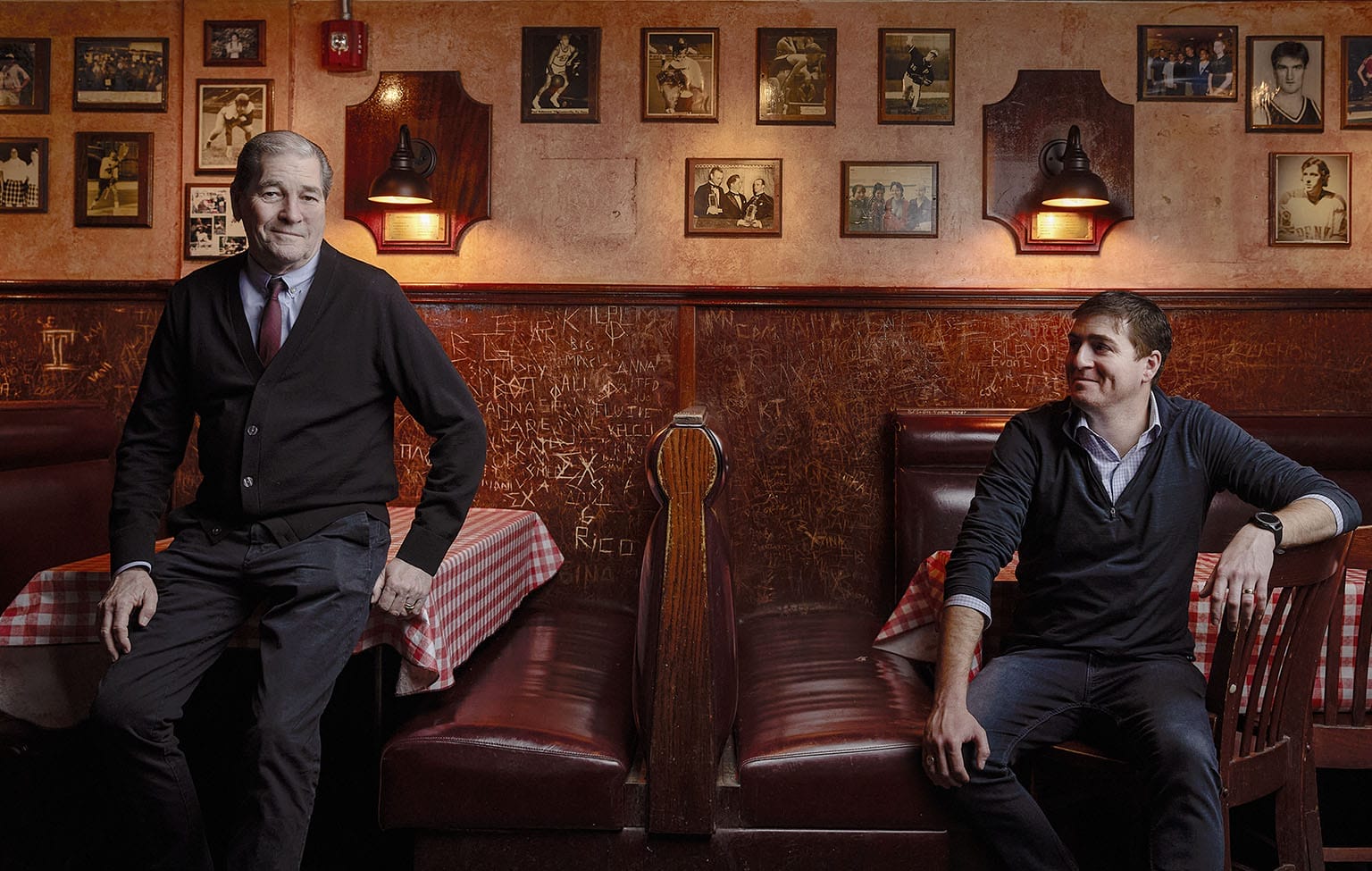Jacqueline Reses W92 learned the value of small business ownership by watching her parents run their medical supply company while growing up in Atlantic City, New Jersey. Today, as the CEO of Luna Financial Group — as well as the former head of Square Capital and chief development officer for Yahoo — Reses is a frequent source for media outlets covering business. Over years of giving interviews and speaking at conferences, she noticed that something was missing from those conversations. “CEOs and founders of small businesses are rarely profiled in the media as experts in the same way that CEOs of major corporations are,” she says. “Small business owners have interesting insights and wisdom to share that can be helpful to other businesses.”
Reses set out to talk to dozens of entrepreneurs across the country about their personal stories and practical advice. Along with Lauren Weinberg, chief marketing officer of Square, Reses has co-authored Self-Made Boss: Advice, Hacks, and Lessons from Small Business Owners. As Reses herself describes it, the book serves as an “approachable and pragmatic how-to guide for small businesses to start, run, and grow.”

Jacqueline Reses W92
In thinking back on her transformative years at Wharton and Penn, Reses holds fond memories of one campus business in particular — Smokey Joe’s, the legendary bar on 40th Street that’s been in the Ryan family since 1952. Famous patrons have included Grace Kelly and Candice Bergen; the bar earned a cheeky reference in President Gerald Ford’s 1975 commencement address, and countless old tales of good times and late nights there are told when alumni gather for Reunion. Smokey Joe’s still serves as a place where friendships are formed, bonds deepen, and memories are made.
Today, Paul Ryan and his brother, Pat, run the pub; with their children also on board, the folks behind “Smokes” now span three generations. In the spirit of Self-Made Boss, Reses connected with Paul Ryan via video conference to discuss the dynamics of running a family business, surviving the pandemic, and what makes Smokey Joe’s “the greatest bar in Philadelphia.”
Jacqueline Reses: Let’s start with the interesting dynamics of being in a family business.
Paul Ryan: Smokey Joe’s was started by my father. My grandfather owned neighborhood bars, and when my dad bought Smokey Joe’s, my grandfather said, “You must be out of your mind to buy a bar like that. It’s college kids.” Then one Saturday afternoon, my grandfather went down to the bar and saw 15 empty half-kegs outside. He called my uncle, who was a beer distributor, and said, “Why didn’t you come down here and pick up the kegs yesterday?” My uncle goes, “That was from today.” From then on, my grandfather loved the college-bar business.
My dad started in ’52, and now my brother Pat and I are partners. We have four bars. My son Paul and Pat’s sons Sean and Michael are also in the business.
Do you think that having a family business has been a benefit to you, and, if so, how? Clearly, it seems to be working.
Myself and my brother, we have always gotten along, ever since we were kids. We don’t have arguments over the business. The kids get along well. They’re learning to manage the business — be there at night, work during the day. My brother and I still do the finances.

This caricature mural dates back to the original location on 36th Street.
My parents owned a medical-supplies business and used to deliver on Christmas. They would say, “It’s health care. We’ve got to be there for our customers when they need us. It doesn’t matter that it’s Christmas.” Is there a lesson you’ve tried to imbue in the next generation?
The first thing is, if you want to be successful, you have to love what you’re doing. And the second thing is, you have to work hard, because it’s never easy. A lot of people think you own a bar, you go in, collect the money, have a few drinks, it’s all fun. No. You have to work.
You mentioned owning four bars now. How did you decide you were ready for more locations, and what was your process for expansion?
We had a place that was like a big nightclub, but we didn’t own the property, so the landlord wanted more rent each year. After, like, 12 years, we decided we weren’t paying any more rent. So we looked for pubs in smaller towns near Philadelphia where people can walk to them — West Chester, Phoenixville, and then Manayunk five years ago. They’re all called PJ Ryan’s, and we have Smokey’s on campus.
It sounds like you have a formula — this neighborhood niche. What’s the secret sauce for your success?
It goes back to what I said — you have to have fun with what you do. And the customer has to have fun. We have deejays, Quizzo, things that keep people mingling with each other. Because we’re not in the booze business. We’re not in the business of selling alcohol. We’re in the business of people meeting people.
That’s magic. How did you figure that out?
You went through it as a student. Smokey Joe’s is a mating ritual. People come in to meet other people. It’s as simple as that. They don’t come because our beers are any better. People come to meet people, to be around people. Especially young people. I wish I could take the iPhones and flush them down the toilet.
Let’s talk about the pandemic. What was the biggest challenge you’ve faced?
The uncertainty of everything was probably the hardest. You never knew what the next edict was going to be, especially in Philadelphia. You could stay open till 11, but you can only have 25 percent capacity. Then you can only open outside, then you can open inside but everybody has to wear a mask, and now everybody has to be vaccinated — which I like. The vax cards have their date of birth, so when a student shows ID and it doesn’t match their date of birth, we know it’s fake.
I can understand the frustration of ever-evolving mandates. Did you change any part of your business model? Did something hit where you’re like, “I never would have tried that; this is amazing for my business”?
We didn’t change that much because a lot of the time, we were closed, or you could only let 25 percent in. We did a lot more outdoor dining, especially in the suburbs. It helped a little bit. The only thing that saved most of the industry was the PPP [Paycheck Protection Program] and the RRF [Restaurant Revitalization Fund]. You didn’t hear about RRF, because the idiots in Washington blew through it in about two days.

The walls at Smokes are covered with memorabilia and photos.
I helped execute the PPP with the Small Business Administration on behalf of Square. It was pretty stressful for a lot of small businesses.
PPP worked well; it helped a lot of people. The city had a program with the Chamber of Commerce, and the banks worked with us.
If you want advice about your business, who do you go to? Who’s your personal board of directors?
I talk with my brother. We seem to know what goes on at other bars. You keep updated on what everybody else is doing. We talk about who to hire, how many hours should we stay open for lunch or close for lunch, this special, that special, what works, what doesn’t work, what the competition is doing.
Do you use social media for your business?
We’re using Instagram, Twitter, and Facebook.
And do they work?
I don’t know. [laughs] Maybe, maybe not. I’m not paying for it, so it’s fine. We put all the specials up. I think with Smokey’s, not all that much.

The People Business: Ryan says it’s connections, not consumption, that keep people coming back to Smokey Joe’s. The sign above the bar translates to “In wine, there is truth.”
Because it’s location-based.
Yeah, at Penn, it’s all word-of-mouth.
I was in Cleveland, Ohio, and there was a family that owned a hot-dog stand that had been there for 60-plus years. As a fluke, the father started writing funny Instagram posts before lunch. He had a quirky sense of humor, and he realized over time that it started driving his business. People loved his Instagram posts. He ended up with a pretty big following for a hot-dog stand in Cleveland and used it pretty aggressively to promote the business in a way he never would have expected as someone who’s not an Instagram expert. It’s interesting how people adapt to these channels. Have you ever thought about getting a kid to do posts on TikTok?
That’d be pretty cool. Though if a coach calls the next day and says, “I saw my players out late on TikTok … ”
Maybe do it in another location. [laughs] What advice would you have for someone starting a small business today?
Make a business plan that’s realistic. Study the market, and always have expectations, but don’t over-expect. The key thing is your overhead. Maintaining volume in a small business after you first open — I call it the honeymoon period, usually 12 to 18 months. People say, “You see that new place over there? It’s packed.” I say, let’s see them in about five years.
So overhead number one, location number two. And is the business going to be able to sustain ups and downs? Because you will have your ups and downs. My volume doesn’t fluctuate much — I don’t expect to be up 25 percent next year. Three major bars within a block are gone, and my volume hasn’t really increased that much this year. So I think you have to be realistic in your goals.
Is hiring a challenge for you now?
Knock on wood, it’s only been a challenge in one place, where we’ve had a problem getting kitchen help. But aside from that, servers and bartenders are usually part-time, so I don’t hire a whole lot of full-time people. But I do have lots of problems with purveyors, suppliers, trash pickup, beer deliveries. They don’t have enough truck drivers, they don’t have enough people in the warehouse, so the supply chain is really messed up.
How long do you think the supply chain problems will go on?
I think the third quarter will be all right.
Any idea where all the people went?
I have no idea. I asked my son, who’s a U.S. economist for Deutsche Bank. He said people are quitting. He doesn’t know what they’re doing. I don’t know if they’ll come back to their old jobs. I think a lot of people have taken this opportunity to say, “You know, I didn’t really like my job. I’m going to look for something better,” or “I’m going to study.” One of our cooks is leaving us to study I.T. so he can get a better job, and I thought, well, that’s terrific.

Decades of graffiti scratched into the wood feels less like vandalism and more like love notes to a moment in time and to this place.
That’s awesome. Do you have any tricks for how to manage your team or ways you operate as a leader?
In this business, there’s a lot of screamers. People that run restaurants, they go to the kitchen, they scream and yell. I don’t yell at people. Sometimes I tell them: You disappoint me. But aside from that, we’re very lenient with our employees. I’m not the type that goes, oh my God, we’re missing three drinks here.
Sounds like you’re empathetic.
Well, yeah. Most of them are young. People say, “Aren’t you afraid the college kids are going to steal from you?” Before I put them behind the bar handling cash, I get to know them as a person, as a waitress or waiter. You judge their character first. Once you know their character, then you can put them behind the bar and just hope that they do the right thing.
That’s great. We should end on that note. Thank you — Penn changed the trajectory of my life, and I had some great times at Smokes.
People ask what Smokes is like. I say it’s a neighborhood bar in a neighborhood that changes every four years and is made up of people from all over the country, all over the world, all races, all creeds. Everybody comes in and mixes together. That’s why I think it’s the greatest bar in Philadelphia.
Published as “The Business of Smokey Joe’s” in the Spring/Summer 2022 issue of Wharton Magazine.

























